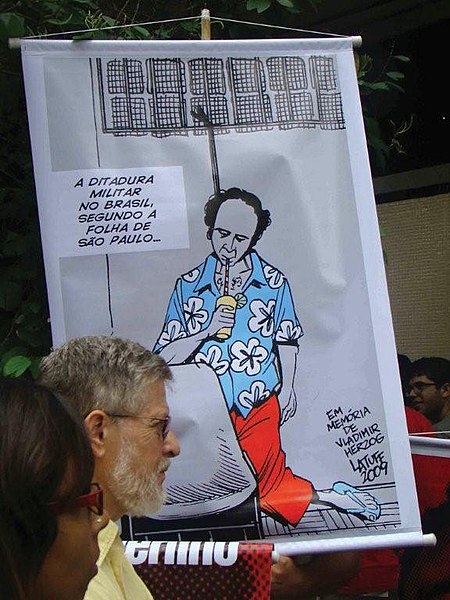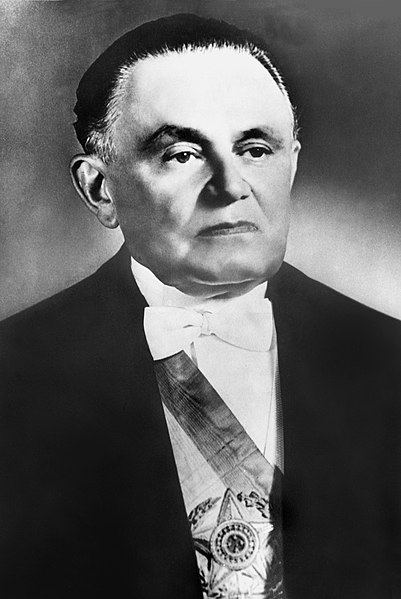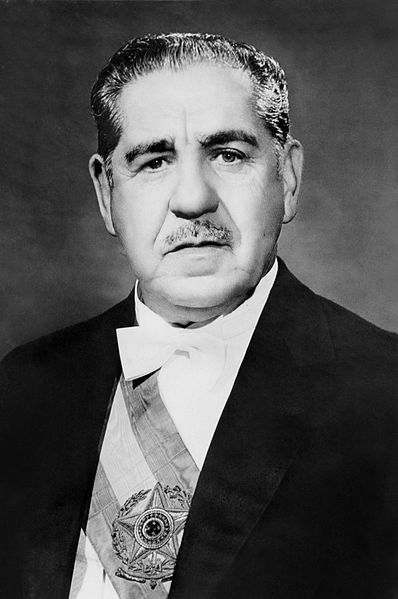Vladimir Herzog, nicknamed Vlado by his family and friends, was a Croatian journalist, university professor and playwright of Croatian-Jewish origin. He also developed a taste for photography, because of his film projects.
Vladimir Herzog
2009 event in Brazil. A poster from political cartoonist Carlos Latuff with the sarcastic legend: The military dictatorship in Brazil, according to the newspaper Folha de São Paulo. It is based on the infamous photo of Herzog by the Brazilian intelligence and repression agency Departamento de Operações de Informações - Centro de Operações de Defesa Interna (English: Department of Information Operations - Center for Internal Defense Operations) São Paulo.
Military dictatorship in Brazil
The military dictatorship in Brazil, occasionally referred to as the Fifth Brazilian Republic, was established on 1 April 1964, after a coup d'état by the Brazilian Armed Forces, with support from the United States government, against president João Goulart. The Brazilian dictatorship lasted for 21 years, until 15 March 1985. The coup was planned and executed by the most senior commanders of the Brazilian Army and received the support of almost all high-ranking members of the military, along with conservative sectors in society, like the Catholic Church and anti-communist civilian movements among the Brazilian middle and upper classes. The military regime, particularly after the Institutional Act No. 5 in 1968, practiced extensive censorship and committed human rights abuses, including institutionalized torture and extrajudicial killings and forced disappearances. Despite initial pledges to the contrary, the military regime enacted a new, restrictive Constitution in 1967, and stifled freedom of speech and political opposition. The regime adopted nationalism, economic development, and anti-communism as its guidelines.

João Goulart was the left-leaning president ousted by the Armed Forces
U.S. President John F. Kennedy (left) and President Goulart during a review of troops on 3 April 1962. Kennedy mulled possible military intervention in Brazil
Marshal Castelo Branco
Marshal Costa e Silva






